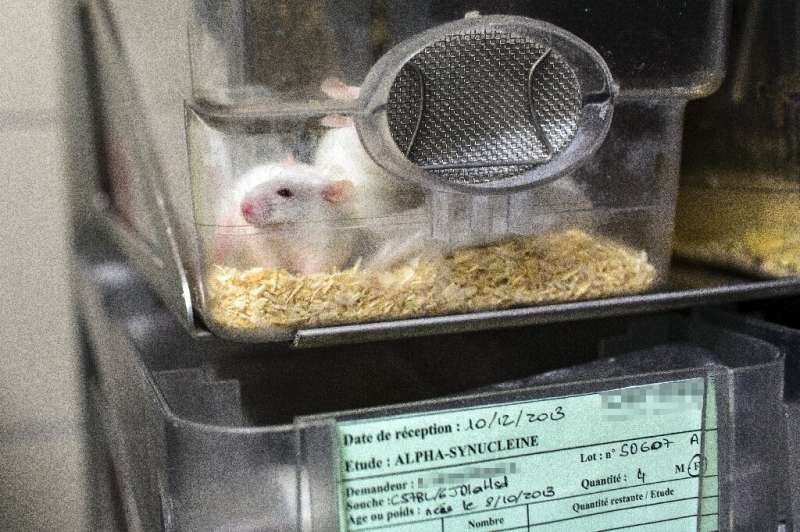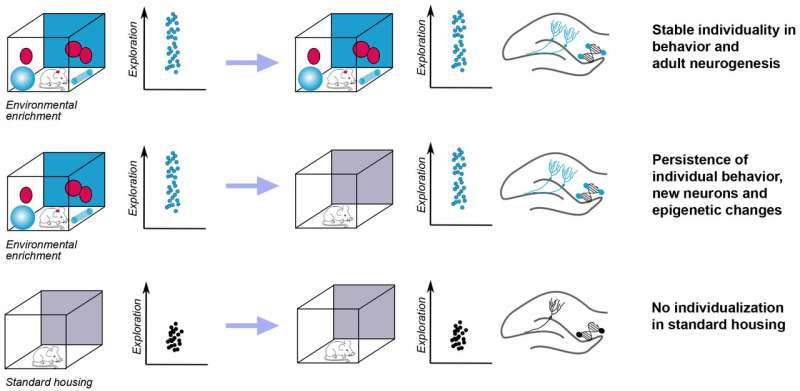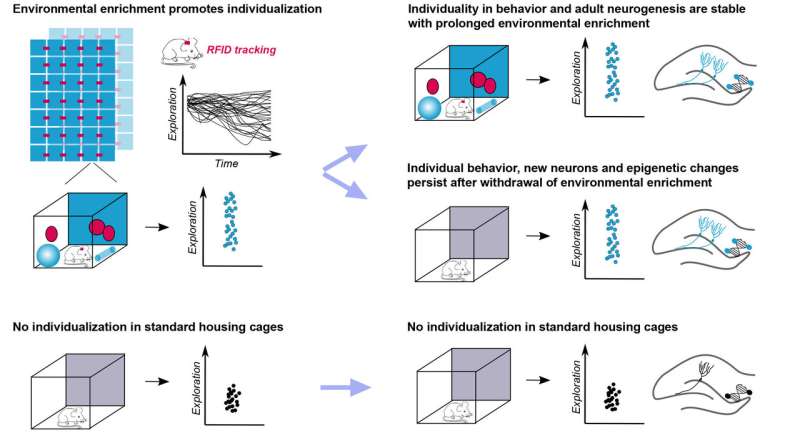This picture shows mice in a box at the Neurosciences rechearch Center CERMEP in Bron, France in 2014
Mice that grow up in stimulating environments not only become smarter and more curious but are also more likely to develop individualized "personalities," a new study showed Wednesday.
These behavioral differences become imprinted on their genomes and remain even when the rodents are put back in standard cages, indicating that early-life experiences can have long-lasting benefits to their brains.
Gerd Kempermann, a professor at the German Center for Neurodegenerative Diseases (DZNE) Dresden, told AFP the research could have implications for humans, including how we raise our children.
Kempermann was the senior author of a paper describing the findings in Science Advances.
The team designed a sprawling cage system made up of 70 interconnected cages arranged on seven levels.
This so-called enriched environment contained equipment designed to inspire play, including plastic toys, tunnels, and hideouts that were replaced and rearranged every week.
The mice in the study were inbred twins, in order to control for genetic variation.
The researchers took five-week-old mice and housed 40 in enriched environments for six months; 40 in standard cages for six months; while 40 spent three months in enriched cages before moving to standard cages.
Living of mice in a stimulus-rich environment causes individual changes in behavior and brain structure that persist for long-term, even after stimulus withdrawal. Credit: Sara Zocher 2020
They were microchipped to record their movements, and were later euthanized to analyze their brains.
Mice that spent the entire six months in the enriched environment were more likely to explore as adults, and there was a great range of individual personalities.
In the context of mice, personality refers to "relatively stable differences in behavior," said Kempermann.
The team also found that mice that spent either three or six months in the enriched setting had more neurons in the hippocampus—a part of the brain associated with memories, learning and emotion.
The group which went from enriched to standard settings continued to show high rates of exploration, even though some of their activities were diminished.
Significantly, the team also found that mice that had been kept in enriched environments had major changes to their genomes.
Living of mice in a stimulus-rich environment causes individual changes in behavior and brain structure that persist for long-term, even after stimulus withdrawal. Credit: Sara Zocher 2020
Molecules known as methyl groups had attached themselves to particular regions of the DNA in the neurons of the hippocampus, which alters how the genome can be read and indicated that some behavioral changes had become permanent.
This might be good news in the context of people who have a traumatic event in adulthood but whose childhood was otherwise stable, said Kempermann.
In the longstanding nature versus nurture debate, the data suggests that providing a good environment early on can have a permanent impact.
"People cannot change their genes, but they can change their behavior, so it's relevant to know what the contribution from the non-genetic factors is," said Kempermann.
More information: Sara Zocher et al. Early-life environmental enrichment generates persistent individualized behavior in mice, Science Advances (2020). DOI: 10.1126/sciadv.abb1478
Journal information: Science Advances
© 2020 AFP


























